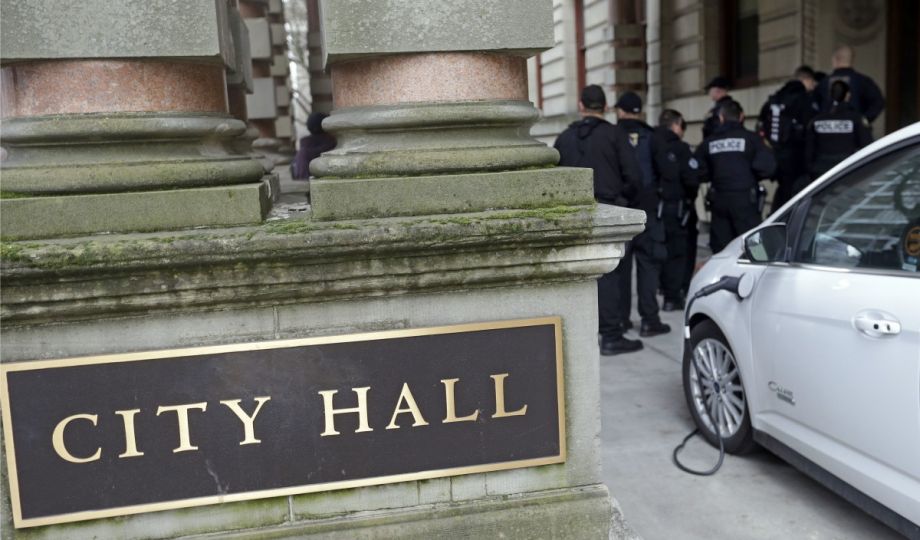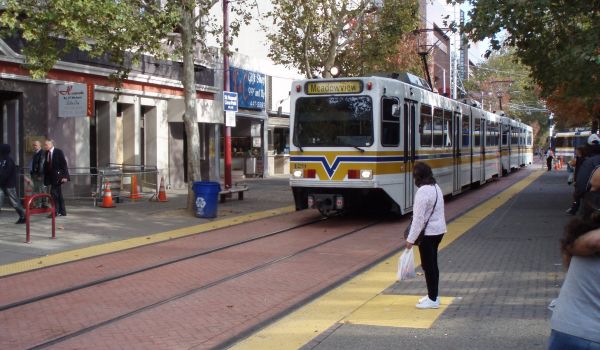In a move meant to make fare enforcement more equitable and bring fines in line with other cities, Portland’s TriMet transit system is rolling out a new fare evasion penalty policy. The tiered system offers a scale of fines that increase with subsequent offenses, provides an option to work off fines with community service and a chance for low-income riders to get their fine waived. Equally important, the new policy will give offenders 90 days to resolve the fine before it gets adjudicated in court.
Currently, TriMet’s $175 fare evasion fine is among the most expensive in the country. Seattle’s Sound Transit offers a warning to first time offenders and charges $126 for every offense after that. San Francisco’s Muni gives out fines up to $110. Dallas’s DART system fines fare evaders just $50.
Under the new system, TriMet will fine fare evaders $75 for their first offensive, $100 for the second, $150 for the third, and $175 for the fourth and beyond. In lieu of the fine, people will have the option of performing 4, 7, 12 and 15 hours of community service for the first, second, third and fourth offensives respectively. Finally, low-income riders will be able to get the fine waived for their first offensive if they qualify for TriMet’s soon-to-launch low-income fare card program or the Honored Citizen program for senior riders on Medicare and riders with disabilities. If the rider enrolls in one of those programs within 90 days and loads at least $10 on their card, TriMet will waive the fine.
“In all the research we’ve done on citations and how agencies handle these, I’ve never come across an agency who does it in a way that helps facilitate people into their low-income fare program. … This gives us a vehicle to encourage people to enroll in the low-income program,” explained TriMet senior deputy general council Erik Van Hagen at the Jan. 24 TriMet Board meeting.
In addition to making the fines less burdensome for riders, TriMet wanted to take the process out of the courts. Currently, all fare evasion fines are adjudicated in the county court system. In a press statement provided by a TriMet spokesperson, the agency recognizes that there can be “unwanted consequences when citations go into the court system. A court record can affect a person’s ability to get a job, rent a house or serve in the military.”
Fines will now be dealt with by TriMet as an administrative matter if paid within 90 days. After 90 days, the process is turned over to the courts. San Francisco decriminalized fare evasion in 2008. Last year, a Cleveland municipal court ruled it was unconstitutional for Cleveland’s transit agency to use police as fare checkers, though non-law enforcement checkers are still allowed. Washington D.C. is currently considering decriminalizing fare evasion.
“It’s a great step in the right direction to make sure we have a decriminalized system,” says María Hernández Segoviano, advocacy coordinator with OPAL, a Portland grassroots environmental justice group that helped push for this policy change. “It is especially important when in Portland and other cities when we continually see [disproportionate] enforcement happening to people of color.”
A 2016 Portland State University analysis of TriMet fare enforcement did not find evidence of racially biased enforcement. But the analysis did find statistically significant evidence that black TriMet riders caught without a ticket more likely to get a temporary ban from transit than white riders and other groups.
Hernández Segoviano argues that the best way to decriminalize fare evasion is to make transit free. “There are some folks who just cannot afford the transit system. … Some individuals who evade fares are making hard choices between transit tickets and other essentials.”
Free transit was never on the table as part of the policy change, but OPAL and other community groups did advocate for a lower set of fines. Hernández Segoviano says there was a call for the fines starting at $50 and capping out at $111 (TriMet’s survey of 25 transit agencies around the country found that the average fine was $111). There was also a call for letting people off with a warning for their first offense.
There was debate on the board over a $50 or $75 starting point. Several board members worried that a $50 fine would not be a serious enough threat to encourage riders to pay their fare. Board member Lori Irish Bauman said at the Jan. 24 meeting, “There’s a risk that riders don’t pay their fare on the chance that they won’t get caught and if they do they’ll say, ‘heck it’s just $50.’ Going forward we need to look at the extent to which there are more riders not paying fares because we reduced the penalty to $75.”
The new policy will be implemented this July. The board members and Hernández Segoviano agree that it will be critical to make sure transit riders understand their new options. According to Van Hagen, TriMet is working to update the tickets themselves to explain the changes and train fare enforcement officers to explain the new policy when issuing the fines.

Josh Cohen is Crosscut’s city reporter covering Seattle government, politics and the issues that shape life in the city.
Follow Josh .(JavaScript must be enabled to view this email address)
















